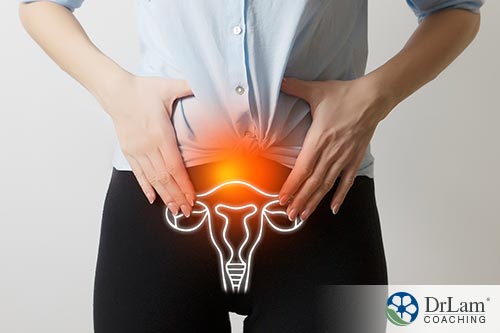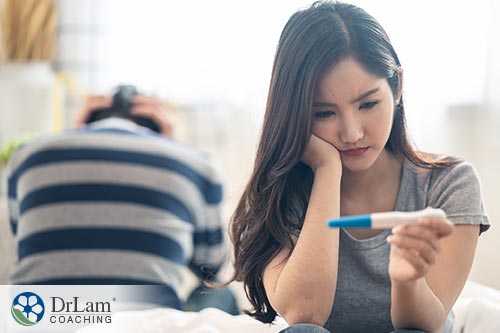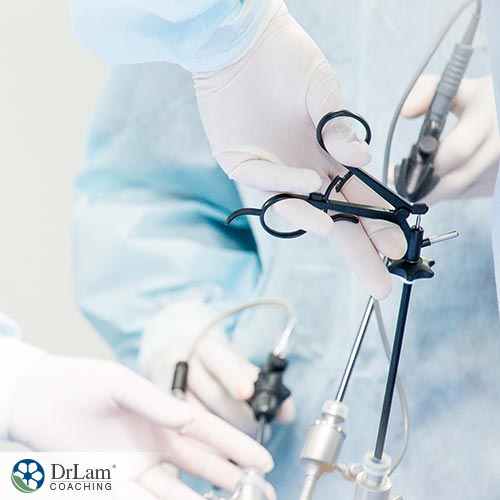 The pain associated with endometriosis may persist regardless of the medication that some women take. In such cases, endometriosis surgery may be the last resort. Before you consider undergoing surgery, make sure you know your different endometriosis surgery options as well as their possible consequences.
The pain associated with endometriosis may persist regardless of the medication that some women take. In such cases, endometriosis surgery may be the last resort. Before you consider undergoing surgery, make sure you know your different endometriosis surgery options as well as their possible consequences.
Endometriosis is a condition where endometrial tissue that is normally found in your uterus lining grows outside of your uterus at certain points within your abdomen. This results in numerous symptoms, including pain during a bowel movement or while having intercourse with a partner. The condition may also negatively influence your fertility.
Treatment of the condition usually focuses on alleviating your symptoms. There is no known cure for endometriosis, although the condition and the many symptoms may abate once you reach menopause. Various hormone treatments may be recommended as well as endometriosis surgery.
Various endometriosis surgery options are available. Which one you choose depends on you and your doctor’s abilities. Do remember, however, that while endometriosis surgery may increase your chances of conceiving, opting for a hysterectomy (which is one of the surgical options available) leaves you permanently unable to bear children.
Taking the above into consideration, and remembering that any form of surgery is invasive. Persons usually take this route only when other forms of symptom management do not work.
Confirmation of the condition is usually via laparoscopy. This is a surgical procedure that allows for a 100% correct diagnosis of the condition. Many women with endometriosis show no visible symptoms. They usually find out they have the condition when they are unable to get pregnant. Other women, on the other hand, may have several symptoms (which may also be painful).
Symptoms associated with endometriosis include:
A laparoscopy starts with gas pumped into your abdomen. The procedure is via small incisions in the area of your belly button. A lighted scope is then inserted into one of the incisions and surgical instruments in the other to perform the specific type of procedure. Once the procedure is over, the incisions are closed. Most women undergoing this type of endometriosis surgery go home the same day.
Several different surgeries variations may be performed during a laparoscopy:
Ablation (a type of endometriosis surgery) sees a laparoscopy performed and the cyst drained and removed using a laser. Please note that the heat from the laser may damage an ovary and reduce your chances of becoming pregnant.
Here the treatment aims at cutting away the cyst while undergoing laparoscopy using a laser. This popular endometriosis surgery tends to reduce the recurrence of the condition considerably. You do, however, also risk damage to an ovary.
This procedure refers to the draining of fluids from certain endometrial growths. After this treatment, the affected is area is later removed via a surgical procedure.
Please note that while laparoscopy is quite effective in reducing endometrial tissue, it may not be as effective when larger areas need treatment.
A laparotomy is a traditional form of abdominal surgery making use of a larger incision in the pelvis. This form of surgery is usually called for when addressing large areas of endometrial growth. Women undergoing this form of surgery take longer to heal than those undergoing a laparoscopy. But, the expected outcomes are similar.
A hysterectomy (the removal of your uterus and possibly ovaries and cervix) is a procedure usually reserved for the most severe cases of endometriosis. Women undergoing this surgery immediately become menopausal and may start showing related menopausal symptoms.
A hysterectomy may be performed either vaginally, abdominally, or via laparoscopy.
 Most women recover much faster after any type of laparoscopic surgery than after an abdominal hysterectomy or a laparotomy, although they may only be allowed limited activity for the period directly after the procedure. You may also experience some discomfort due to trapped air although any pain experienced should dissipate within a few days.
Most women recover much faster after any type of laparoscopic surgery than after an abdominal hysterectomy or a laparotomy, although they may only be allowed limited activity for the period directly after the procedure. You may also experience some discomfort due to trapped air although any pain experienced should dissipate within a few days.
Recovery from open surgery may take up to six weeks. If you had a hysterectomy, you may experience typical menopausal symptoms including hot flashes, loss in bone density, and even hormone issues and vaginal dryness.
Women finding it difficult to conceive and undergoing endometriosis surgery may have up to 60% pregnancy success rate within two years of having an operation. Please note that this does not include women who undergo a hysterectomy.
There are, as with any type of surgery, risks involved when undergoing endometriosis surgery. Common risks include:
If the symptoms persist (and other symptoms related to infection occur), please contact your healthcare practitioner as soon as possible to address the issue.
While endometriosis surgery may increase your chances of getting pregnant (excluding a hysterectomy) and may address some of the symptoms associated with the condition, it is not a cure. Removing all misplaced endometrial tissue is practically impossible, and any remaining tissue may continue to grow. But, you may not have to undergo the procedure. It depends on the severity of your particular case. A hysterectomy tends to relieve the majority of your symptoms, but you will be in menopause and probably show menopausal symptoms.
Many endometriosis symptoms are related to hormonal imbalance. The condition itself may put stress on your body and affect your body’s NeuroEndoMetabolic (NEM) Stress Response and affect your hormones. Furthermore, the oral treatment that's commonly prescribed may further complicate your hormone issues. Surgery as a means of addressing the issue is also a stressor and may also affect your Hormonal Circuit. A hysterectomy, if that is your chosen surgical choice, may affect your body even more.
Symptoms common to both adrenal fatigue and endometriosis include:
Although you cannot prevent or cure endometriosis, you can manage the various symptoms. But, because it affects your hormones, and your body’s adrenal glands and NEM, providing adequate adrenal support throughout may have a positive overall effect. Having adrenal fatigue and endometriosis concurrently is a possibility. This means making proper dietary and lifestyle changes that include getting enough of the right type of exercise.
The adrenal fatigue diet seeks to balance hormones while supplying adrenal support. It consists of 40% whole grains, legumes and fruit, 30% lean protein, and 30% healthy fats. The diet also recommends you cut out any sugary foods, fizzy drinks, caffeine, alcohol, polyunsaturated fats, and processed foods.
Endometriosis surgery may help to address many of the symptoms faced by women with the condition. It does not, however, offer a cure. A certain percentage of women undergoing this type of surgery may find their endometriosis symptoms flaring up after a while. Many others find lasting relief after undergoing the surgery. The outcome largely depends on the person and the severity of the condition.
If you are considering undergoing endometriosis surgery, please consider the following before agreeing to the surgery:

If you would like to know more about an endometriosis surgery or need more assistance with endometriosis and a possible endometriosis surgical treatment, the team at Dr. Lam Coaching can help. We offer a free** no-obligation phone consultation at +1-626-571-1234 where we will privately discuss your symptoms and various options. You can also send us a question through our Ask The Doctor system by clicking here.
Unfortunately, no. Endometriosis surgery will not cure your condition, it will only alleviate the symptoms. Also, in a certain percentage of women struggling with infertility, it may increase their chances of getting pregnant. The exception is a hysterectomy that will leave you infertile.
